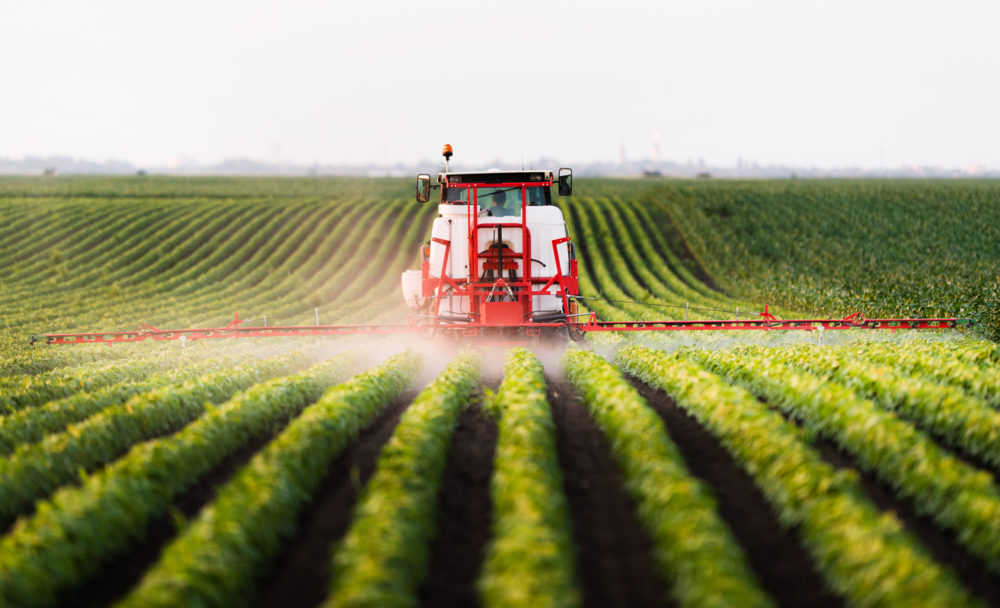US agribusiness major FMC has agreed to acquire BioPhero, a Danish startup producing pheromone-based biocontrols for the crop-growing industry.
- An FMC statement said that the company will buy BioPhero for approximately $200 million.
- BioPhero will become part of FMC’s plant health business, which is also based in Denmark.
- The deal includes the startup’s technology, intellectual property, and supply agreements, while the whole BioPhero team will also join FMC.
- The acquisition is slated to close by the end of Q3 2022.
- FMC expects revenue from pheromones and pheromone-based insect control products of about $1 billion per year by 2030.
For its most recent funding round — its Series A in March 2021 — BioPhero raised $17 million from lead investor DCVC Bio and FMC’s FMC Ventures, Novo Holdings, and Syngenta Ventures.
How it works:
BioPhero is contributing towards the development of biological controls for the agricultural industry that are more sustainable than traditional chemical-based insecticides.
To do this, it’s tapping into pheromones: the chemical ‘messages’ released by individual animals that elicit a social response from members of the same species – including when it comes to reproduction.
- Farmers have used pheromones as a pest control for decades, applying the factor to their crops in order to frustrate and confuse insects’ mating activities – leading to fewer insects.
- Pheromones offer a less-toxic alternative to chemical insecticides and the negative environmental and biodiversity impacts of their overuse. Since insects do not develop resistance to pheromones, which they naturally produce themselves, there is no risk of over-application.
- However, many of the ‘artificial’ pheromones used by growers are still produced by chemical synthesis, leading to high costs, limited options for application, and sustainability issues.
BioPhero has built an advanced fermentation platform that allows it to produce pheromones at substantially lower costs and in higher volumes that conventional, chemical-driven processes.
It uses yeast fermentation techniques on renewable raw materials — mainly byproducts from manufacturing plant oils and sugars — to produce pheromones that can be added to pest control inputs for corn, rice, soybean, and a variety of other row crops.
Why it matters:
The deal marks the latest big-ticket exit in the maturing agtech space.
Speaking on a shareholder conference call, FMC CEO Mark Douglas said that the company’s purchase of BioPhero was “driven by their highly-efficient yeast fermentation process [which has] lower costs and fewer steps than competing technologies.”
He said that BioPhero’s technology and products will benefit from FMC’s “market access in row crops across geographies,” adding that he saw further opportunities in integrating the startup’s solutions with FMC’s existing inputs and digital ag offerings.
“We don’t see this as cannibalistic at all to our existing business. In fact, we see it as an opportunity to expand our market share,” he told analysts. “So the billion dollars [annual revenue] we’re talking about with regards to pheromones is totally additive.”

Douglas also said that FMC would likely make further acquisitions of innovative agtech startups, saying that the purchase of BioPhero aligns with the company’s earlier indications that it would ramp up M&A activity in the plant health and biological inputs areas.
“BioPhero is a good nexus across [both] of those. But it won’t be the last one,” he said. “You should expect to see us do more of this. This is the type of acquisition we want to be doing.”
The bigger picture:
The market for biological crop inputs is expected to hit $18.5 billion in value by 2026, up from $10.6 billion today, as consumers, regulators, and farmers push for more sustainable food production methods, according to a forecast from Research and Markets.
- The same analysis suggests that biocontrol agents — which include biological alternatives to chemical pesticides — are already the largest market segment within biologicals, and are expected to remain so by 2026.
- Data from VC firm AgFunder shows that startups developing biological crop inputs raised around $892 million from investors worldwide in 2021, well over double their total funding haul for the previous year [disclosure: AgFunder is AFN‘s parent company.]
What they say:
Kathleen Shelton, executive vice president and chief technology officer, FMC:
“We’re excited to add BioPhero’s innovative pheromone molecules to our new product pipeline, and we expect to launch five new pheromone products over the next three to five years. The opportunities for advanced biomanufacturing technology extend well beyond insect control. Working together, we can significantly expand the use of fermentation technologies across a wider set of crops targeting a variety of pests, including fungi and weeds.”
Søren Møller, managing partner, Novo Holdings:
“The technology developed by BioPhero is an excellent example of using nature’s own pheromones to combat pests in a safe and yet efficient way. Novo Holdings has invested in BioPhero since inception and has renewed its commitment to the company in each financing round. We are very satisfied to see the rapid development of the company, and this sale demonstrates that FMC shares our vision of introducing new sustainable solutions in agriculture.”




